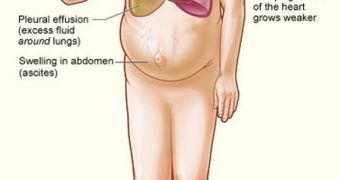The poor implementation of key national guideline-recommended therapies may be responsible for as much as 68,000 deaths per year in the United States alone. All of these people could survive, if the country were to implement the therapy courses in an optimal manner.
Some of the therapies include prescribing and installing critical medications and cardiac devices inside eligible heart failure patients, say investigators at the University of California in Los Angeles (UCLA).
Over the past few decades, clinicians across the country failed to implement the newest, scientifically-proven therapies and treatments, that were developed specifically to combat heart failure-related mortality rates.
The rate at which cardiac patients' average quality of life has improved has been inconsistent and slow over the years, sufficiently so to allow for thousands to die, the UCLA research effort uncovered.
“This is one of the first studies to quantify the potential survival benefits that could result if these guideline-recommended therapies were universally applied to all eligible heart failure patients in the United States,” explains expert Dr. Gregg C. Fonarow.
The scientist, who is the first author of the new investigation, is the UCLA Elliot Corday professor of cardiovascular medicine and science, and also the director of the Ahmanson–UCLA Cardiomyopathy Center, at the university's David Geffen School of Medicine.
Details of the new research were published in the June issue of the esteemed American Heart Journal.
“With tens of thousands of lives potentially saved with optimal application of these therapies, the findings have significant clinical and public health implications,” Fonarow goes on to say.
“Determining the impact of each evidence-based therapy is helpful in prioritizing performance-improvement initiative efforts and planning future strategies to improve adherence,” he explains.
The correct implementation of all recommended therapies could allow more than 67, 996 of the 2,644,800 heart failure patients in the US to survive their condition. Administering aldosterone antagonists-based treatments alone was proven capable of saving 21,407 lives.
Further investigations now aim to determine how the implementation of these therapies could affect early detection, hospitalization patterns, and other clinical patterns related to the healthcare system.

 14 DAY TRIAL //
14 DAY TRIAL //